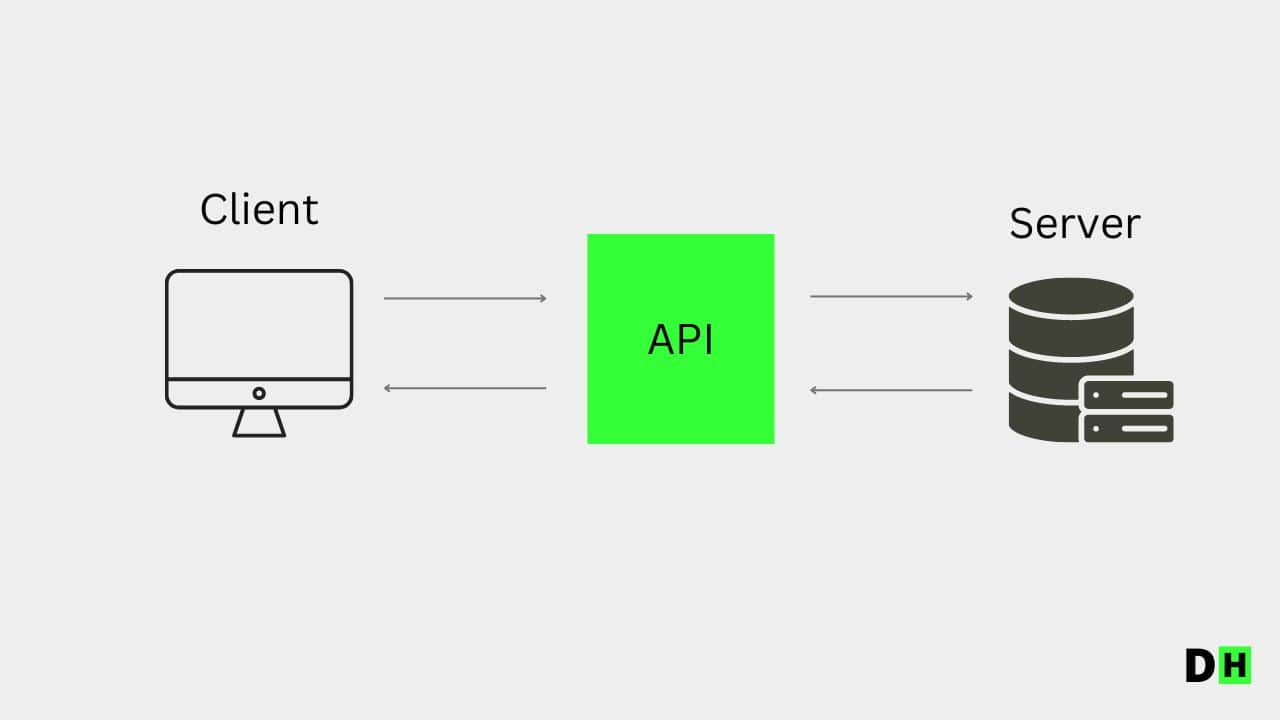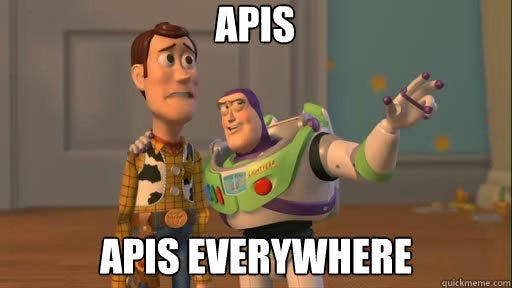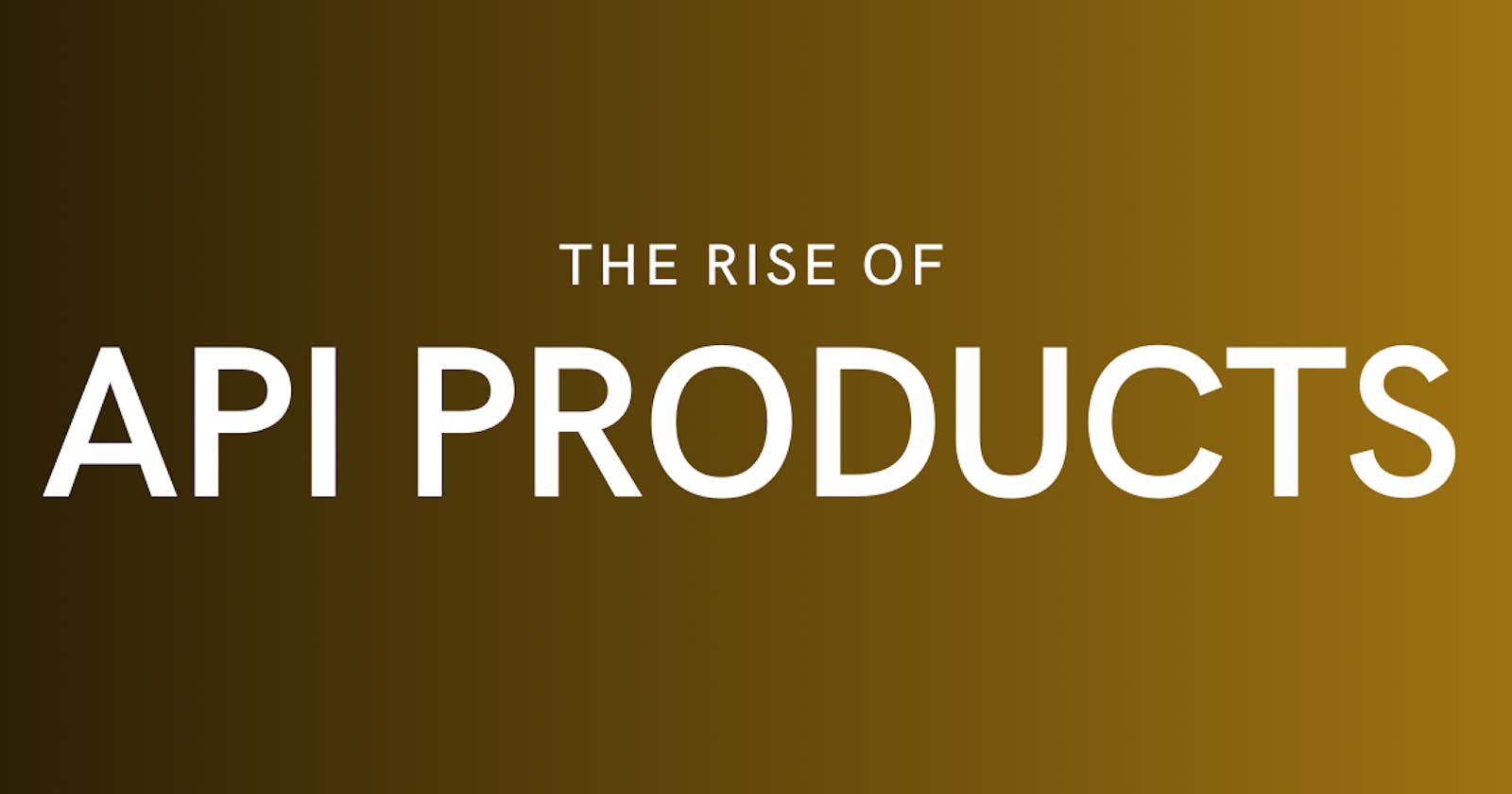APIs…APIs Everywhere!
As the API economy continues to grow, we enter an era of API dominance. Application Programming Interfaces (APIs) have evolved from simple tools to becoming the fundamental building blocks of modern software. Throughout this ‘evolution’, an evident trend emerges in API products.
In this article, we get to view the increase in the use of APIs, what an API product is, its significance in today's digital ecosystem, and a brief guide on how you can get into this paradigm.
So what exactly is an API?
You can think of an API as being like a waiter at a restaurant, serving as a middleman between the client (you, the customer) and the server (the kitchen). Customers who want food don’t go into the restaurant's kitchen to cook. They don’t even have to know how to make the food! They only have to know how to ask the waiter for food and expect the waiter to bring it back.
APIs work the same way. An API, in simple terms, is a way for two or more computer programs to communicate with each other. It is a type of software interface that allows for the sharing of resources and services across applications, organizations, and devices.

What is an “API Product”?
An API product is simply treating an API as a standalone product rather than just a technical component of a larger system. It’s adopting a customer-focused product mindset. Instead of being solely an interface for developers to access certain functionalities, an API product is designed, developed, and marketed as a valuable offering to external developers and partners.
Increase in use of APIs
The use of APIs globally continues to grow, with Enterprise Strategy Group finding that 64% of organizations expect most or all of their applications to use APIs within the next two (2) years. Furthermore, companies are increasingly adopting an API-first approach. An API-first approach means prioritizing the APIs that enable your application and focusing on the value they may offer to your company, instead of racing to construct a single application and developing the API as an afterthought.

As the adoption of APIs grows, many companies are recognizing the potential of API products as a way to drive innovation, foster collaboration, and generate revenue.
"Organizations are also seeing a direct impact on their bottom line, reporting their APIs as revenue generators." - Abhinav Asthana, co-founder and CEO of Postman.
“Its products and companies like these that make us believe API productization will be a growing theme during 2024.” - Bruno Pedro and Vania Coelho
Investments in APIs
According to GGV, a venture capital firm, API-First companies have raised over $20 billion, indicating the significant potential and growth of APIs in the coming years.
In Q2 2023 alone, API-First Index companies raised over $300 million. This trend showcases the increasing recognition of APIs as valuable assets.
So, if you have an API-related business idea, now is a good time to launch it. The market need and potential for success in the API sector are demonstrated by the increasing usage of APIs and the significant investments being made in API-first organizations.
"How can I tap into this paradigm?" you ask.
Commercializing your API into an API product involves a strategic shift from viewing it solely as a technical component to recognizing its potential as a standalone offering with principal market value.
By adopting an approach that goes beyond functional capabilities to encompass user experience, documentation, and support, organizations and individual developers can elevate their API to the status of an API-as-a-product. This means setting clear objectives, defining pricing structures, and communicating the unique value proposition of the API to the target audience.
Conclusion
The rise of API products aligns with the expanding landscape of the API economy, where the emphasis is not only on connectivity but also on the creation of meaningful, marketable solutions.
Organizations and individual developers can harness the potential of APIs to generate new revenue streams and provide value to a wider developer and consumer ecosystem by embracing the API-as-a-product strategy.
I believe API productization is more than just a trend. It will be a revolutionary force that shapes the future of APIs and propels businesses, organizations, and individual developers into the next era of possibilities.


